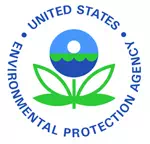|
CAA State Delegation
|
Box 1. CAA Delegation
The EPA may approve an S/L/T procedure for implementing EPA standards, except that the EPA does not delegate to S/L/T agencies the authority to make decisions that are likely to be nationally significant, or to set standards less stringent than the underlying EPA standard. See Specific Authorities Retained by EPA.
- The requirements issued under an EPA approved program are enforceable by the state and also by the EPA.
- EPA always retains the authority to enforce its own rules, even when a state implements the program under a delegation. The S/L/T agency with jurisdiction for the source or the EPA (in its permitting authority role) implement the CAA standards by means of permitting programs
- A construction permit addresses any CAA standards applicable to the new construction or modification, while an operating permit gathers all requirements applicable to a source and may include additional operational restrictions.
- Major sources and certain non-major sources must operate under a title V operating permit.
|
Box 2. Federally Enforceable State Operating Permit
A federally enforceable state operating permit (FESOP) program is an optional SIP program for trading emissions and issuing PTE limits that the EPA considers federally enforceable provided the program meets five criteria:
- Be approved into the SIP;
- Impose a legal obligation that permit holders adhere to the terms and limitations of such permits;
- May not impose waive, or make less stringent, any limitations or requirements contained in or issued pursuant to the SIP;
- The limitations, controls, and requirements in the operating permits are permanent, quantifiable, and otherwise practically enforceable;
- Go through a public comment period;
|
Box 3. State Permitting
- Applies to sources located in State jurisdictions.
- Issued by State or Local permitting authorities.
- States have preconstruction permit requirements for both:
- Minor
- Minor NSR
- HAPs (Optional), including programs for limiting PTE under subpart E of part 63
- Operating Permits (Optional)
- Major sources
- Pre-construction Permits (PSD/NSR)
- Operating Permits (Title V/Part 70) apply to major and certain area sources
|
Box 4. Federal Permitting
-
Applies to sources located in Federal jurisdictions (e.g., non-authorized States, Indian country, OCS).
- Permits issued by US EPA regional offices.
- EPA has construction permitting requirements
- for minor sources in Indian Country, and elsewhere
- Pre-construction Permits (PSD/NSR) for Major sources
- Operating Permits (Title V/Part 71) apply to major and certain area sources
|
The CAA provides for state, local and tribal (S/L/T) governments to develop programs for implementing this federal law. When an S/L/T submits a complete application and EPA has determined that the S/L/T program meets the federal requirements, EPA approves the S/L/T program. This is called a "delegated" program. After EPA approves a program, the delegated entity (SLT) applies the national standards and regulations by issuing and enforcing its own rules and permits. EPA always retains the authority to enforce its own rules, even when the program is delegated.
Please see the following website for a listing of CAA delegations for S/L/T. Where a S/L/T does not have delegation, EPA is the direct implementing Agency. (also see Boxes 1, 2, 3 and 4).
CAA expressly provides the authority for Indian tribes to play essentially the same role in Indian country that states do within state lands. Visit the Indian Country Resources page for more information on engaging in oil and natural gas extraction activities in Indian country.
More Resources
Crude oil and natural gas Air Regulatory State Resource Locator. This resource contains links to regulatory agencies, regulations and topics such as permitting.
|






